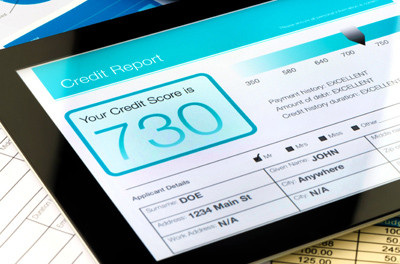With the recent major security breach of Anthem, one of our nation’s largest healthcare providers, you might be extra concerned about the safety of your credit information. And for good reason. The Anthem breach put up to 80 million people’s private data at risk. More than bank account information, which can be fairly easily changed, this breach affected social security numbers, names, addresses, and dates of birth. Because private personal information such as this cannot be easily changed, this means that those affected by this breach could be facing challenges down the road 5, 10, or even 20 years from now.
What can you do to lessen the blow if an unfortunate situation like this happens to you?
One possibility is initiating a credit freeze.
A credit freeze, also called a “security freeze,” essentially puts all of your credit information on extreme lockdown. For that reason, this isn’t the best option for everybody; it depends on your unique situation. A credit freeze is more powerful than fraud alert and credit monitoring because it actually stops your information from circulating without your permission. Because creditors need to see your credit report before opening new lines of credit, a credit freeze will stop identity thieves in their tracks because creditors won’t have access to your reports.
If you’re interviewing for a new job or looking to make a major purchase, consider instead initiating a fraud alert until authorized parties have had an opportunity to view your credit reports. A fraud alert will use secondary identification, such as a phone call or an email, before issuing your credit report. And you don’t have to wait until you’re a victim of identity theft to initiate one; anyone can set up a fraud alert that lasts 90 days.
For those who want extra protection, here is how you can initiate a total credit freeze:
Contact each of the three credit bureaus.
To begin a credit freeze, you must contact each of the credit bureaus —Transunion, Experian, and Equifax — individually. There’s no way to do it all at once. Give the organizations a call and let them know you’d like to set up a credit freeze.
Share your information with them.
As vulnerable as it feels to share your personal data, especially if you’ve become a victim of a security breach, it’s necessary so the companies can pull up your correct account information. They will ask you for your name, social security number, address, and birthday — but remember, no organization should ever ask you for private passwords or bank account numbers.
Set up your account.
You’ll set up an account that lets you have control over who sees your credit report so that you can release it when necessary. This will involve a username and password that let you have access to an account management system.
A credit freeze will not prevent lenders you’re already involved with from seeing your credit information.
Remember, per Equifax, a credit freeze
“…may delay, interfere with or prohibit the timely approval of any subsequent request or application you make regarding a new loan, credit, mortgage, insurance, government services or payments, rental housing, employment, investment, license, cellular telephone, utilities, digital signature, Internet credit card transaction or other services, including an extension of credit at point of sale.”
Is a total credit freeze right for you? Give us a call, and we’d be happy to help you weigh the pros and cons for your specific situation.



[…] How To Initiate a Credit Freeze Click Here […]
[…] Read the whole article here. […]